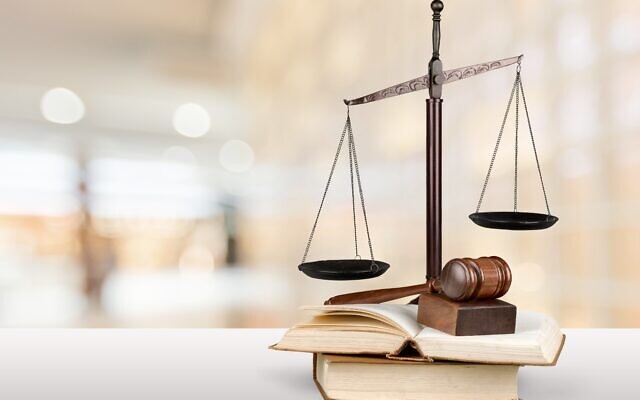Can You Sue Your Lawyer?
Atlanta attorney Warren Hinds has a niche law firm defending lawyers and “going after them” by unhappy plaintiffs.
After 37 years with the Atlanta Journal-Constitution and now with the AJT, , Jaffe’s focus is lifestyle, art, dining, fashion, and community events with emphasis on Jewish movers and shakers.
Few other professions are maligned and joked about as much as the legal field. Lawyers “take a fee” for getting clients out of bad deals, bad marriages, and sometimes bad luck. They often bare the brunt of a losing battle while the billing clock is ticking.
Enter Warren Hinds, sharing guidelines of how indeed an attorney might be liable. Conversely, he also represents attorneys against claimants who threaten their license and livelihood. Most law firms in this space either represent one side or the other. Known as the trusted “Lawyer’s Lawyer,” Hinds handles both sides, obviously not concurrently, and serves as ethics counsel for around 30 Georgia law firms.
Hinds outlines how to evaluate if you have a case against an attorney: “To have a viable claim for legal malpractice, the claimant must prove (1) existence of an attorney-client relationship which can even be cocktail chatter; (2) attorney fell below the applicable standard of care; (3) attorney’s act(s) or omission(s) were the proximate cause of damage.”
Sounds like legalese, but it boils down to proving the client has been irreparably harmed by the attorney’s wrongdoing…but, Hinds says, “If the error can be corrected by the client, he/she is obligated to take steps to avoid or minimize the harm.”

Circumstances that have led to successful claims against attorneys include missed statutes of limitations/ deadlines, ignoring conflicts of interest, failure to properly prepare and file necessary documents, pursuit of the wrong entity or individual. As a general rule, if an attorney commits malpractice, the client is entitled to recover what he should have received but for the lawyer’s mistake. If the lawyer is dishonest, commits fraud, or is otherwise involved in misconduct that is something more than mere negligence, the client may be entitled to additional recovery (i.e., attorney’s fees and punitive damages).
Financial compensation is the only thing that can be recovered in a legal malpractice case. The court cannot undo what has occurred, for example, if a client loses custody of their child or has their home foreclosed because of a lawyer’s mistake.
Other ways attorneys get into trouble per Hinds include improper administration of trust account funds. One lawyer was disbarred when he paid two personal credit cards (less than $100) from his escrow account, and another lawyer was publicly reprimanded for bouncing a trust account check to himself.
Lawyers have been suspended or disbarred for criminal convictions unrelated to their practice, including aggravated assault, filing a false police report, possession of controlled substances, and failure to file tax returns.
Lawyers have an ethical duty to protect client confidence such that lawyers have been disciplined for threatening to disclose confidential information or, in some instances, defending themselves from false, online reviews.
An interesting example of Hinds’ winning defense for an accused lawyer is a case in which the client would have lost the underlying case even if the lawyer had not erred. One might infer that winning a malpractice suit against an attorney could be difficult.
Per Hinds, “Legal malpractice cases can be lengthy and expensive. Commonly referred to as a ‘case within a case,’ evidence is not limited to the attorney’s negligence, but also of the underlying circumstances of the representation. Expert witness testimony is required. Consequently, most plaintiffs hire me on a contingency fee basis, although a small percentage opt to pay me an hourly fee to prosecute their claims. On the defense side, I am always paid hourly.”
Hinds shared some tips on choosing a lawyer wisely: “Eschew TV ads and Yellow Pages like the old days. With the Internet and social media, clients can thoroughly vet the lawyer’s experience and past results, read reviews posted by past clients, determine whether the lawyer has ever been sued or received public discipline from the State Bar. Ask if they carry malpractice insurance. In Georgia, they are not required to!”
Now in practice for 34 years, Hinds grew up in Norwalk, Conn., and graduated with a BS in agricultural economics from the University of Florida. He attended law school at Western State University in Orange County, Calif. Hinds is a member of Congregation Beth Shalom.




comments